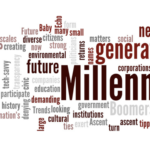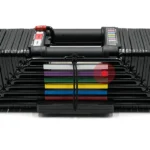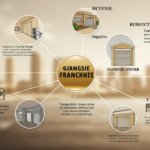I seemed away from the nurse as she wrapped the tourniquet round my arm and ready the needle. Then I noticed that I used to be the one affected person getting blood drawn. Everybody else was receiving intravenous chemotherapy.
My neurologist referred me to this hematology-oncology apply on the off likelihood that my cryptogenic stroke was brought on by a illness of the blood like lymphoma, leukemia, thalassemia or one other clotting dysfunction.
“Simply loosen up,” the nurse mentioned as she punctured my arm.
I seemed a bit too carefully on the chemo sufferers.
Don’t stare, I advised myself.
As somebody therapeutic from sickness, I knew that the one individual I might need watching me obtain remedy could be somebody who liked me. So, I closed my eyes because the nurse modified the primary of 9 vials.
An hour earlier than, I had been a hematologist’s again as he feverishly typed my solutions to his lengthy listing of questions into a pc.
“Referring physician?”
“My neurologist.”
“Date of final bodily examination?”
“Earlier than the hospital keep?” I requested.
“Sure.”
“I noticed my gynecologist two months in the past.”
“Surgical procedures?”
“My heart specialist put a loop recorder underneath my breast to examine for arrhythmia.”
“Why’s that?” he requested.
“As a result of I had a stroke two weeks in the past and no one is aware of why,” I replied. “Do you wish to take a minute to have a look at my check outcomes?”
“No. Are you sexually energetic?”
I paused.
“You don’t must reply,” he mentioned. “Transient historical past of chief grievance?”
“You need me to explain the stroke?” I requested.
“Sure.”
After I speak about essentially the most terrifying second of my life, there’s a suspicion — felt as a roving stress between the guts and abdomen — that makes me consider phrases conjure motion, like a spell. So, I needed to ask him how the narrative of my musculoskeletal failing, which is how I first skilled my stroke, would give him medical perception into the make-up of my blood, which was his space of experience. However he was poised, palms on the keyboard, ready. And, he was the knowledgeable. So far as I understood, I wanted him. So, I took a deep breath and started.
“At 5:45 p.m. I obtained up from the sofa to dress to fulfill a good friend for dinner. As I used to be pulling my denims over my knees, my physique buckled beneath me and I tumbled to the ground. I attempted to achieve for the sting of the mattress, however I felt like I used to be beneath a 400-pound bag of sand. Then — ”
He stopped typing, spun his chair round, and seemed me straight within the eye for the primary time.
“So that you have been mendacity on the ground with no shirt on and your pants pulled down?” he requested.
“Yeah.”
“That’s fairly humorous. Can I let you know a shaggy dog story about being caught along with your pants down?”
I stared at him, dumbfounded.
“It’s actually humorous,” he insisted.
I needed to say: “What’s incorrect with you? Do I have to remind you that you’re not at an f-in’ keg celebration?” Nevertheless it didn’t seem to be that will encourage him to assist me, so I mentioned, “OK.”
“My father is a bigwig lawyer, and he and my mom get invited to a variety of galas.”
As he spoke, I attempted to masks my shock on the realization that the primary time this physician confronted me was after he imagined me with no shirt on and my pants down.
“My mom obtained into the limo carrying nothing however her fur coat as a result of she didn’t wish to wrinkle her robe. As she was slipping into it, the valet opened the door and noticed her half-naked! All of us say he will need to have thought my father was making an attempt to cop a really feel. Isn’t that hilarious?”
“Comedy gold,” I replied.
He laughed as he swung his chair round, apparently pleased with his supply. I used to be relieved to be observing his again once more.
“Then what occurred?” he requested.
“My husband got here house and took me to the hospital,” I answered, deliberately reducing the story quick to keep away from any extra soiled detours.
He completed typing and led me to the door the place a younger nurse greeted me. “Get her prepared for a bodily examination,” he mentioned. Then he whispered one thing in her ear.
As I sat on the sting of the examination desk, the nurse took my temperature and blood stress. “The physician has requested that you simply take off your shirt,” she advised me. She held out a paper robe and mentioned, “Open to the entrance.”
I didn’t take it.
“Why does he want to look at me with no shirt on? He’s a hematologist,” I mentioned.
She checked out me blankly.
“Does he do that with everybody?” I requested.
She shrugged, handed me the robe, and left the room.
He let me know that essentially the most compelling a part of my medical trauma, for him, is the truth that I used to be half-naked when it occurred, I assumed.
I took off my shirt and pulled the paper robe round my shoulders, open to the entrance.
He entered the room. The nurse stood at a distance from the examination desk, leaning in opposition to a countertop, like she didn’t wish to be related to him.
He walked over to me and started gently touching my neck. I checked out my toes dangling beneath me like a toddler sitting on the dinner desk in an grownup chair.
Then he introduced: “I’m going to do a breast examination. Lie down, please.” I seemed on the nurse, imploring her with my eyes to reply the questions I had requested earlier. She seemed away.
Two weeks prior I had a stroke and nobody might inform me why. My neurologist insisted that I make an appointment with a hematologist. She beneficial this physician particularly, so I lay again on the desk.
I averted my eyes from his face and tried to disregard his chilly, clammy palms on my breasts. I seemed on the popcorn ceiling tiles. What have been they fabricated from? Styrofoam? Asbestos? Polystyrene?
“OK. You may costume and meet the nurse to get your blood drawn,” he advised me. Then he and the nurse each left.
I lay on the examination desk. I put my heat palms on my breasts to remind myself that they belonged to me. There’s a historical past of males treating ladies’s our bodies like they’re objects that they possess, and his palms had made an imprint of that historical past on my physique.
I obtained up and ran heat water over a paper towel. I wiped my breasts with it to scrub them. It simply felt like the suitable factor to do.
After I was within the chemo suite getting my blood drawn, it was simpler to stare on the most cancers sufferers than it was to consider why the physician pictured me bare, talked about his mom bare, after which touched my breasts, regardless that that examination didn’t seem like medically vital or applicable to my situation. It was simpler to be distracted with the remedy of others than to consider my very own.
However because the nurse drew vial after vial of blood from my arm, I homed in on the truth that I used to be referred by my neurologist for blood testing, not by my gynecologist for breast most cancers remedy. I mirrored on the truth that the hematologist requested nothing concerning the outcomes of my final mammogram. If he was fascinated about my breasts for some medical purpose associated to my stroke, wouldn’t he have needed that data?
Because the nurse stuffed the ninth vial of blood, a query looped by way of my thoughts: Are hematologist-oncologists even educated to provide breast exams?
After I obtained house, I searched the web for any proof that there was a medical purpose for a hematologist-oncologist to carry out a breast examination. I discovered this, written by Dr. Maurie Markman, the president of drugs and science on the Metropolis of Hope most cancers heart: “Hematologic malignancies differ from different forms of most cancers as a result of they develop within the physique’s blood cells and will not kind tumors. Whereas some hematologic oncologists have experience in treating strong tumors, most don’t deal with operable cancers corresponding to breast most cancers or lung most cancers.”
I additionally found that the 4 pillars of medical ethics are beneficence, non-maleficence, autonomy and justice. A method that physicians can decide in the event that they’re performing with beneficence is to ask whether or not an possibility and its outcomes are according to a affected person’s expectations of remedy. Since I used to be referred by a neurologist for blood testing after a stroke, the reply to that query, because it pertains to performing a breast examination, would positively be “no.”
Individuals who cross boundaries typically exploit energy and those that want and belief them. Medical professionals are afforded an incredible quantity of energy. Although sufferers have to belief their docs, their docs are usually not at all times reliable.
However what’s belief precisely? The 4 pillars of medical ethics don’t embody belief. Possibly docs, from an moral standpoint, aren’t required to be reliable?
I can solely say that I trusted that the hematologist, beneficial by my neurologist, wouldn’t make mild of my stroke, share sexual tales about his dad and mom, or carry out a breast examination with out medical trigger. For that reason, I by no means needed to see him once more.
Sadly, my insurance coverage wouldn’t pay for one more set of assessments with a extra reliable hematologist. The one technique to get the outcomes of the hundreds of {dollars}’ price of assessments that he ran on 9 vials of my blood was to schedule a follow-up with him.
So, I requested my mom to come back with me to the follow-up go to. When she was a latest divorcee, she had famously advised her new male boss that she didn’t want any man to carry a door for her. I hoped that her presence would maintain the handsy hematologist in line. We deliberate that she would sit throughout from him, holding eye contact and asking questions, and I might sit subsequent to her taking notes.
“I discovered nothing. Your daughter is extremely wholesome,” he advised her.
“Fantastic,” mentioned my mom.
“However,” he mentioned, “we are able to do a follow-up in six months to see if something modifications.”
“Why would we do this?” she requested.
“I’m dedicated to serving to you on this therapeutic journey,” he replied. “She’s too younger and wholesome to have one stroke, and we don’t need her to have one other.”
“Thanks, physician,” she mentioned, “however we gained’t be needing your assistance on our therapeutic journey. We haven’t discovered your presence to be significantly therapeutic.”
Then we each stood up, turned our backs to him, and left.
Later that day I researched New York state’s invoice of rights for hospital sufferers. Merchandise No. 9 states that sufferers ought to obtain “all the data that you should give knowledgeable consent for any proposed process or remedy.” I might have liked to listen to the physician’s rationalization as to why he felt it medically vital to look at my breasts.
Merchandise No. 11 states that sufferers could refuse remedy “and be advised what impact this may increasingly have in your well being.” I want I had mentioned: “No, I can’t consent to you inspecting my breasts. You’re a hematologist, and I’m right here as a result of I had a stroke. My breasts weren’t concerned.” I ponder what his rationalization could be for a way this procedural refusal would have an effect on my well being.
Sooner or later, I’ll attempt to communicate up after I don’t have all the data I would like to provide knowledgeable consent for a process or remedy, and I’ll attempt to do not forget that I can refuse any process or remedy that I’m not snug with. I’ll even attempt to remind the physician of the 4 pillars of medical ethics and the sufferers invoice of rights.
Nevertheless, the method of therapeutic weakens not solely the physique, however the thoughts and spirit. Being each a susceptible affected person and one’s personal well being advocate is a cut up in consciousness that’s exhausting to handle. After having a mysterious stroke, I used to be exhausted and terrified — not precisely in warrior mode.
Possibly that’s why I didn’t report him immediately after my expertise. A good friend who works within the medical subject advised me that if I did, the physician would possible lie and say that it was medically essential to bodily study the lymph nodes round my breasts. I imagined being pulled right into a medical malpractice go well with whereas making an attempt to heal, and determined in opposition to it on the time.
Nobody ought to have to arrange for a physician’s appointment as in the event that they have been going into battle. However the medical system is full of people that have super energy and little or no oversight, with many visits involving solely the affected person and the physician in an examination room. Sooner or later I’ll attempt to invite somebody who actually loves me to affix me at each necessary physician’s appointment. I shouldn’t must go to those lengths to really feel secure with a physician, however being each a susceptible affected person and a well being care warrior is the place that too many people are put in.
I can’t assist however marvel, if I had introduced my mom to the primary go to, would I’ve wanted her at the second? I’ll by no means know, however I’m proud to say that she not too long ago sat with me whereas I filed a grievance in opposition to that hematologist.
Observe: Some particulars have been modified to guard the id of people talked about on this essay.
Ok.Web page Stuart Valdes is an award-winning filmmaker, author and educator. She is at the moment engaged on a characteristic movie and a set of essays titled “Cryptogenic: How I Survived a Stroke No One Understood Throughout a Pandemic No One Understood.”
Do you have got a compelling private story you’d prefer to see revealed on HuffPost? Discover out what we’re in search of right here and ship us a pitch at pitch@huffpost.com.
Help HuffPost
At HuffPost, we consider that everybody wants high-quality journalism, however we perceive that not everybody can afford to pay for costly information subscriptions. That’s the reason we’re dedicated to offering deeply reported, fastidiously fact-checked information that’s freely accessible to everybody.
Whether or not you come to HuffPost for updates on the 2024 presidential race, hard-hitting investigations into important points going through our nation at present, or trending tales that make you chuckle, we respect you. The reality is, information prices cash to provide, and we’re proud that we’ve by no means put our tales behind an costly paywall.








